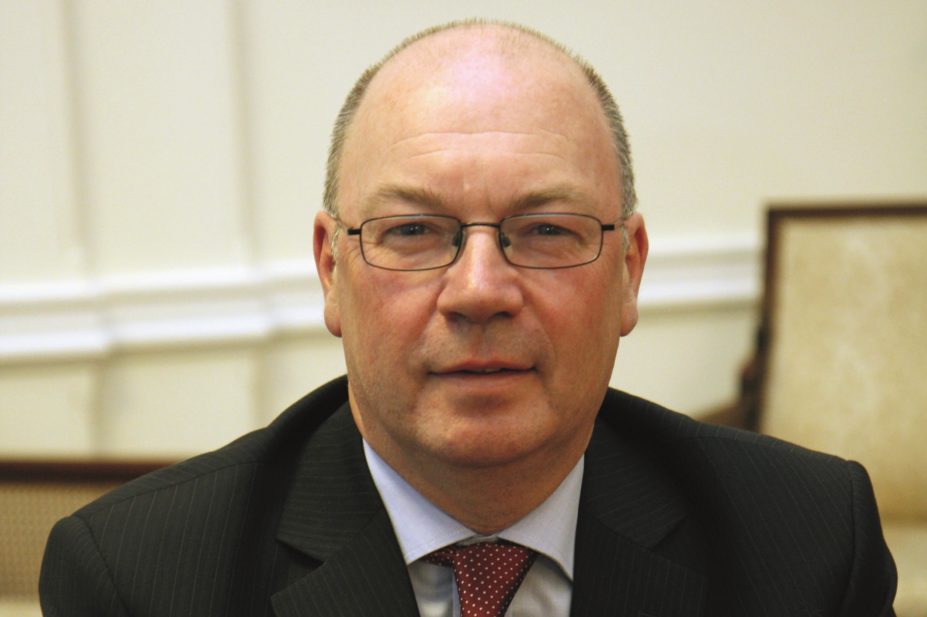
Courtesy of Foreign and Commonwealth Office
Lawyers have given health minister Alistair Burt a deadline of 4pm on 18 March 2016 to respond to claims that the consultation on proposed cuts to the pharmacy budget in England is illegal and should be abandoned.
If the government does not accept that the consultation is illegal then lawyers will consider going to the High Court to seek a judicial review of the consultation process and the content of the consultation document.
The prospect of legal action comes three months after the Department of Health first outlined its proposals for the community pharmacy sector in England in a letter to the Pharmaceutical Services Negotiating Committee. The letter, published on 17 December 2015, set out plans to cut the community pharmacy contractual framework by 6.1% in 2016. As well as the funding cuts, the proposals include a range of measures to make efficiency savings in the sector while extending clinical roles for the profession.
If the judicial review goes ahead, it is likely that the current consultation – due to finish on 24 March 2016 – will stop until the outcome of the legal challenge is known.
Lawyer David Reissner is representing eight clients who approached him after receiving advice from a QC that the current consultation is illegal.
Reissner says the consultation fails to meet legal requirements on three grounds — there is no reasonable detail about why the consultation is taking place; there is no adequate explanation or supplementary information to support the proposals; and there is no suggestion that the government is open minded about its proposals pending the outcome of the consultation.
“If we decide to start judicial review proceedings, the government would have to decide whether to fight [the proceedings] — that would be ill advised as it’s quite plain that the current process is not a lawful consultation — or they would have to agree to start a proper consultation process now,” says Reissner.
The legal challenge is being taken by eight of Reissner’s clients: Elisabeth and Alun Hopkins who own Hopkins Pharmacy in Uxbridge; Butt & Hobbs Ltd, which trades as Hobbs Pharmacy with ten pharmacy stores; Medipharmacy Group, which runs 23 pharmacies; CG Murray & Son, which trades as Murray’s Pharmacy and owns 25 pharmacies; and Waremoss Ltd, the trading name of Kamsons Pharmacy, which has 56 branches.
Details of the challenge come just days before Burt is due to give evidence to the All Party Pharmacy Group’s inquiry into primary and community care being held on 16 March 2016.
The legal challenge has also come to light as the government published an interim summary of responses to the consultation received since it was launched in December 2015.
The summary, released on 11 March 2016, outlines the key arguments being made against the cuts from pharmacy organisations, including Pharmacy Voice, the Royal Pharmaceutical Society and the Association of Pharmacy Technicians UK.
The report also includes the views of the Local Government Association (LGA), which represents local councils, and Healthwatch England, which has statutory authority to represent users of health and social care services.
The LGA says the government has failed to recognise that community pharmacy is a “much needed social and economic asset” and warns that the cuts would put “huge pressures” on pharmacy and the wider public sector.
However, local authorities do support the government’s plans to introduce new models for ordering prescriptions and collecting medicines and its commitment to avoid medicines waste. They also called for changes to commissioning structures in order to “realise the full potential of a new integrated model of care”.
Healthwatch England told the government that there is a “clear appetite” for community pharmacy to play a greater role in health prevention, the treatment of minor ailments and supporting people with long-term conditions. It says consumers value pharmacy’s accessibility and some believe co-locating pharmacies to GP surgeries makes sense.
However, the organisation gives a cautious welcome to the idea of ‘hub-and-spoke’ dispensing and says that where medicines are assembled centrally, patients will still need local access to expert pharmacy advice.

